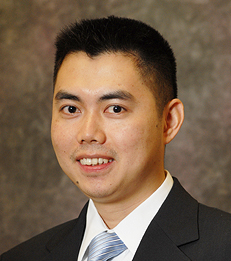
Abstract: The majority of publications in the extensive literature on resource-constrained project scheduling focus on a static deterministic setting for which a so-called baseline schedule is computed prior to project execution. In the real world, however, a project may be subject to considerable uncertainty. During the actual execution of a project, the baseline schedule may indeed suffer from disruptive events causing the actually realized activity start times to deviate from the predicted baseline start times. This presenttion focuses on the construction of optimal policies for the RCPSP with stochastic activity durations, meaning that an optimal baseline schedule is selected as well as all optimal continuations in case a disruption occurs in the baseline schedule or in an already adapted schedule. First, we will take a look at the general case and discuss two models that are capable of constructing ‘optimal’ policies in the sense that these are optimal within the set of schedules that are considered. Next, we will consider a serial project scheduling problem of at most four activities, where the durations of the activities can take on two possible durations. For that particular case, we will construct the real optimal policies and we will infer some rules that can be useful in order to construct better schedules for the general case such that the resulting ‘optimal policies’ are improved.
Bio: Erik Demeulemeester is Professor in the Research Center for Operations Management at the KU Leuven. He earned the degree of commercial engineer (field of Management Informatics) in 1987, the degree of Master of Business Administration in 1988 and a PhD in 1992, all from the KU Leuven. The title of the PhD was ‘Optimal algorithms for various classes of multiple resource-constrained project scheduling problems’. At present, he is Full Professor from 2001 on and currently teaches a course on project and production scheduling, a PhD course on combinatorial optimization and local search techniques as well as a seminar on production and logistics. His main research interests are situated in the field of project scheduling and health care (operating room) planning and he has published many papers on these topics.

Abstract: In this tutorial, we will survey the recent research advances on the interface between operations and finance. We classify the research into two categories. One focuses on the supply chain finance mechanisms, such as trade credit, reverse factoring, purchase order financing, service provider (3pl or platform) financing, and inventory-based financing, etc. For each mechanism, we provide practical examples followed by a discussion of related research work. The other category focuses on the incentive-based interaction between operations and financial frictions, including financial market valuation, debt signaling, and tax.
Bio: Wenqiang Xiao joined New York University Stern School of Business as an Assistant Professor of Information, Operations and Management Sciences in July 2006.
Professor Xiao's research interests are primarily focused on designing and evaluating incentive contracts under supply chain settings and more generally, the principal-agent framework. In particular, he is interested in investigating incentive conflicts among parties with asymmetric information.
Professor Xiao received his Ph.D. in Decision, Risk and Operations from Columbia Business School.